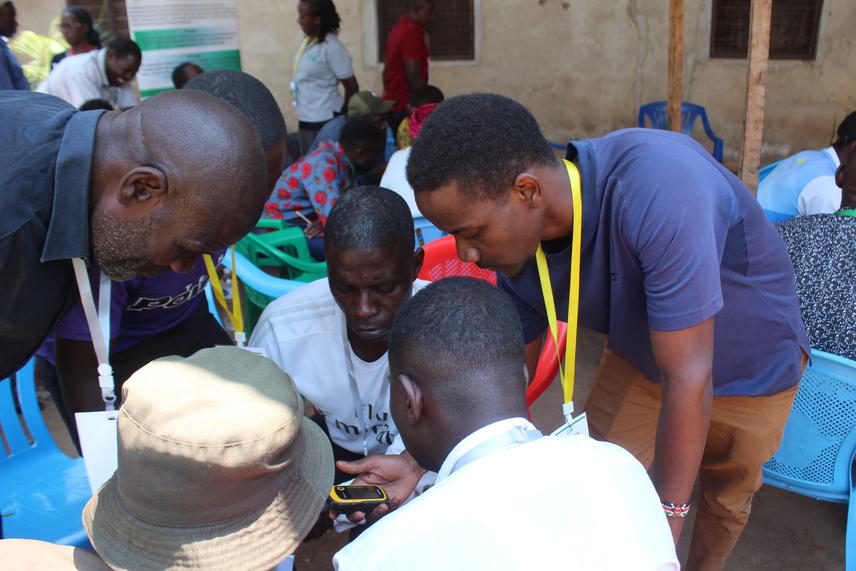Jonathan Kwiyega
Other projects
The project envisions promoting human-lion coexistence and ensuring that lions and people thrive freely in a healthy ecosystem in western Tanzania. We aim to emphasize the launched strategic operations by working in remote areas identified around key protected areas that still harbor lions. We are focusing on remote villages within Rukwa-Katavi-Mahale and Ugalla ecosystems (20458km2); around Rukwa-Luafi GR (7,024km2), Ugalla NP and GR (5,000km2), Mahale NP (1,613km2), Inyonga GR (2,350km2) while keeping a close watch on conservation operations around Katavi NP (4471km2). Our outreach and extension operations will involve the implementation of multi-prolonged outreach activities such as promoting village natural resource governance, engaging community leaders’ seminars, local leaders' park trips, and public conservation education (public talks, educational materials presentation, and film shows.)

Benson Mremi explaining how to use GPS during LCA's training. © Elizabeth Mfumbilwa.
To conserve lions in Western Tanzania, addressing HLCs and habitat loss is crucial. We expect to increase communities' resilience to lion impacts by initiating and implementing mitigation methods for them to tolerate lions. Ensure that benefits from nature-based enterprises provide incentives for conservation-friendly practices and improve willingness to tolerate lions. If people can tolerate lions, we believe they would tolerate and support the conservation of other wildlife species. We are striving to drive the following changes:
1) Increase community-based mitigation capacities against HLCs.
2) Stronger local institutions at village and district levels for improved management of human-lion interactions increased benefits from nature-based enterprises; thereby entailing good natural resource management and governance at village and district levels and actively supporting community-led efforts to conserve wildlife and habitats.
3) Improved monitoring and generation of scientific and local knowledge. Ensuring conservation actions are informed by data-driven information and the best available local knowledge for better outcomes.
We believe these interventions will reduce the cost of living with lions and other wildlife, actualize the value of wildlife and woodlands, and fashion a landscape in which people, lions, and other wildlife co-exist.
Header: Mr. Emmanuel Stephens and Mashaka Kija assisting villagers from Stubwike in Sitalike on construction of Lion Boma Proof. © Abiud Mpasa.